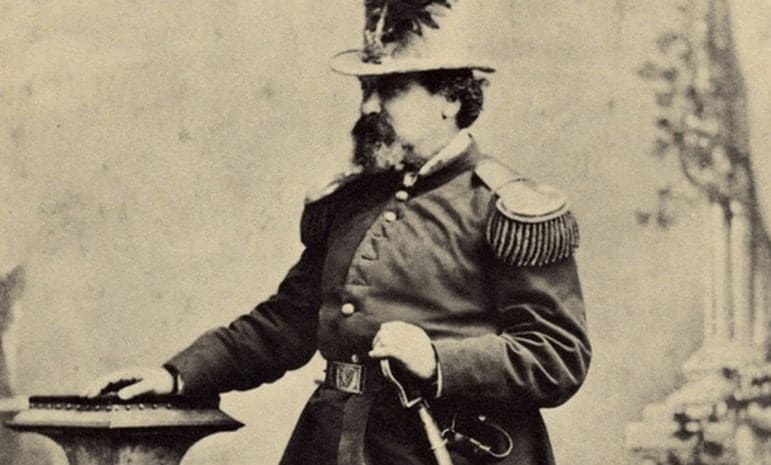Joshua Abraham Norton was born in England but much of his early life was spent in South Africa. He emigrated to San Francisco in 1849 with a substantial inheritance of $40,000 (over $1 million in 2015 dollars).
For a time, he made a living as a businessman and even had success in the real estate market. He increased his fortune from $40,000 to $250,000. He became well known in San Francisco for his business dealings and lived a lifestyle that was befitting a man of his fortunes.
Things took a turn for the worst when an investment he thought would pay off big, cost him everything. A famine in China caused the country to stop the export of rice which meant there was no supply of rice to San Francisco. Norton heard of a ship of Peruvian rice that was due to arrive. He paid a fortune for the entire shipment of rice believing that he could corner the market.
But soon after several more shipments of rice arrived causing the value to plummet. Norton took the rice dealers to court on the grounds that he had been misled but the courts ruled against him. The investment and court case cost him his fortune and by 1858 he was living in a working class boarding house.
He became disgruntled with the legal and political workings of the United States and in 1859 he decided it was time for a change. On September 17th, 1859, he sent letters to a number of papers throughout the city. The letters stated:
“At the peremptory request and desire of a large majority of the citizens of these United States, I, Joshua Norton, formerly of Algoa Bay, Cape of Good Hope, and now for the last 9 years and 10 months past of S. F., Cal., declare and proclaim myself Emperor of these U. S.; and in virtue of the authority thereby in me vested, do hereby order and direct the representatives of the different States of the Union to assemble in Musical Hall, of this city, on the 1st day of Feb. next, then and there to make such alterations in the existing laws of the Union as may ameliorate the evils under which the country is laboring, and thereby cause confidence to exist, both at home and abroad, in our stability and integrity.
— NORTON I, Emperor of the United States”
So how did the papers respond to the letters? And what became of the Self-Appointed Emperor of the United States? Read on to find out!

